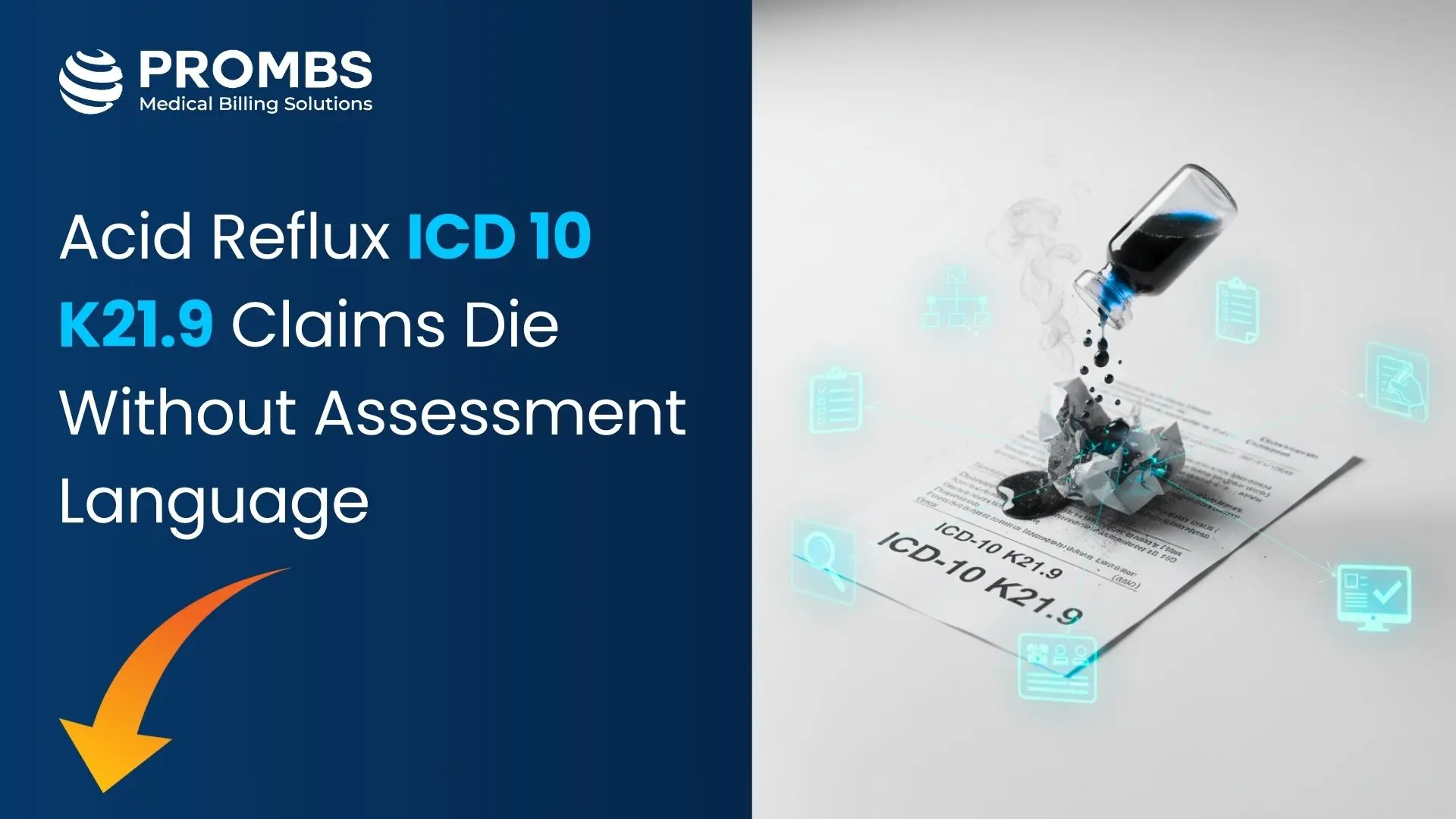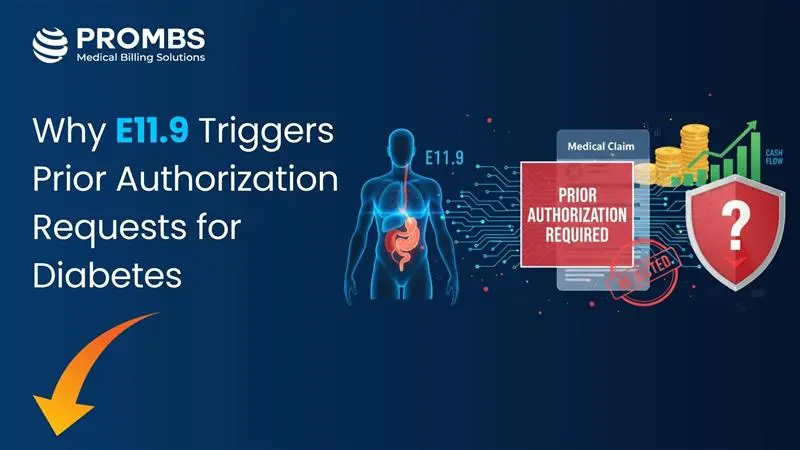Introduction
Are you fed up with the aging claims that disrupt your practice cash flow? A persistent cycle of accounts receivable signals an alarm for the financial health of your healthcare facility. An increase in aging claims causes a huge revenue loss for the economic stability of your practice. The average time is 45, if takes 60, 90, or even 120 days or more to collect, it means you are not collecting in an appropriate way which is problematic and counterproductive for your revenue growth. Undoubtedly, it is a daunting and complex task requiring an entirely different set of skills and extraordinary resources. However given the economic loss caused due to the aging claims, it is imperative that the aging claims need to be addressed on a priority basis. If these claims remain unaddressed, they might have potentially serious implications on the overall growth of your practice.
Fortunately, there are strategies that could lead to improved revenue and reduced stress for a healthcare provider, reducing the risk associated with denial management.
What Causes Aging Claims in the Medical Billing?
There are several factors that cause aging claims such as patient verification issues, mistakes in coding, denial and rejections, errors in claim submission, issues in coordination of benefits, negligence of staff in following up the claims, billing delays, and patients’ responsibilities. These are some of the major reasons that could cause aging claims in the Medical Billing process.
But you need not worry at all, we share with you some of the time-proven techniques that can help you achieve desired financial results by reducing your aging claims.
Assess the Sensitivity of The Problem
Providers need to assess the risks involved in the denial through early intervention, right after the claim is denied. For that purpose, the most productive option is to leverage automated systems that are quick to detect and flag claims that might cause a problem to your practice in the future. This immediate identification of the problem is a wake-up call to reality to quickly devise strategies to address the problem before it spirals out of control.
Payment At the Time of Service
Once a patient visits a healthcare facility, prior authorization is completed if that is mandatory, the best option would be to receive the payment before rendering healthcare service. It is the most ideal way as it will save a huge amount of money, resources, and time, leading to predictable cash flow for a healthcare facility.
Early Payment Incentives
To ensure payment at the time of services, it is imperative to create some incentives for patients who timely pay for the services. This financial motivation would encourage and even motivate patients due to economic relief to arrange payment at the time of getting services.
Data Analytics and Predictive Modeling
Comprehensive documentation of high-cost medical services helps healthcare providers understand the trends and patterns of the claim statuses. Based on the analysis of the patterns of the existing denied claims, you can predict future outcomes. You can get an insight to identify the claims that are the risk of being denied or underpaid. Through prior analysis, you can address these issues before they become difficult to manage.
Communication Factor
As we know, communication is one of the most important factors in Medical Billing Services. Effortless and transparent communication throughout the process from patient registration to payment has an important role. Healthcare providers should have extraordinary communication skills that make it easier for them to convey the instructions required to ensure easy and immediate reimbursement. It is well said that; a well-explained problem is half-solved. Prioritize providing necessary medical information to the patient along with the best medical care to ensure that things move on smoothly and expectedly.
Seek Help from Experts
If you are not an expert at the complications involved in Medical Billing and Coding, it is sensible to outsource your billing services to a reliable Medical Billing company. Outsourcing your Medical Billing services brings lots of benefits to your facility without requiring you to deploy infrastructure facilities, hire billing staff, and provide them with training to produce improved results for your practice.
In this regard, you can contact Pro Medical Billing Solutions which is one of the top Medical Billing companies famous for offering uniquely superior results in the healthcare industry in the U.S.
Utilize AI Technology
The healthcare industry is increasingly being dominated by the latest technological innovations revolutionizing the industry, reducing human involvement, and increasing revenue growth. In addition to improving the operational and financial efficiency of healthcare facilities, AI is quick to easily identify the discrepancies causing leakage to your revenue growth. It also helps you to easily detect fraudulent claims. Many healthcare facilities have heavily invested in automation technologies which are more efficient, transparent, and results-oriented. Automation can do wonders for your aging claims, ensuring improved financial stability and operational efficiency.
Adapt Yourself to Changing Circumstances
The medical billing industry is increasingly evolving with new codes emerging with each passing day. This transition in the industry requires a uniquely different set of advanced skills. That’s why keep equipping and upgrading your skill set to ensure that your services are the most current and updated. With advanced expertise and resources, you can pinpoint aging claim issues through the right strategies.
Ensure Clean & Timely Claim Submission
Want payment within 24-48 hours? Well, it requires quick and clean claim submission. It is imperative for a healthcare facility to immediately follow up on rejected claims. Immediate correction and resubmission are an ideal option to address aging claims and ensure immediate reimbursement.
Analyze Danial Patterns
To effectively address aging claims, it is imperative to analyze the patterns causing consistent denials. Ascertain which healthcare providers’ claims are being consistently denied and what are the root causes of the denial. Prioritize focusing on the claims with a greater risk of being denied and underpaid. In this way, aging claims issues could be effectively resolved.
If these strategies are effectively employed, they can bring the best results to address aging claims. Apart from doing the above-suggested strategies, conduct regular audits to find out the troublesome patterns in your reimbursement cycle that cause delays and denials for your claims. This can help you greatly mitigate the risk of claim denials.
As I earlier said, it can significantly elevate your practice to higher growth and perfection provided that you have a transparent channel of communication. Since multiple stakeholders are involved in the Medical Billing process, that’s why communication should be among the top priorities to ensure financial stability and operational efficiency. Educate your patients about their financial responsibilities so that the process of reimbursement can be simplified and quickened.
Last but not least, the most efficient option to address aging claims is to keep seeking the guidance of industry experts and training your staff about the latest changes and technological tools, so that they can efficiently ensure a reduction in aging claims through the best practices.
FAQS
What are aging claims in Medical Billing?
Aging claims refer to insurance claims that have been submitted but remain unpaid for an extended period. These claims are typically categorized into aging buckets (0-30 days, 31-60 days, 61-90 days, 91-120 days, and over 120 days) based on how long they have been outstanding.
What causes claims to age in Medical Billing?
Claims can age due to various reasons, including incorrect patient insurance information, coding errors, claim submission issues, payer delays, denials, coordination of benefits (COB) issues, and lack of timely follow-ups by the billing team.
How can I track aging claims effectively?
Medical Billing software and Aging Reports (Accounts Receivable Aging Reports) help track outstanding claims by categorizing them based on how long they have been unpaid. Regularly reviewing these reports helps identify delays and take corrective action.
What happens if a claim remains unpaid for too long?
If a claim remains unpaid beyond 120 days, it becomes difficult to collect, and some insurance companies may refuse to pay. Additionally, unpaid claims can impact a healthcare provider’s cash flow and revenue cycle.
How can medical providers prevent claims from aging?
Preventing aging claims involves verifying insurance before service, ensuring proper coding and documentation, submitting clean claims, regularly following up with payers, appealing denied claims promptly, and automating billing processes.
What should I do if an aging claim is denied by the insurance company?
If a claim is denied, review the denial reason, correct any errors, and resubmit it within the allowed timeframe. If necessary, file an appeal with supporting documentation to justify the claim’s validity.
How does Pro Medical Billing Solutions effectively manage aging claims to maximize reimbursements
and reduce revenue loss?
At Pro Medical Billing Solutions, we excel in managing aging claims with AI-powered tracking, error-free submissions, and aggressive follow-ups to ensure faster reimbursements. Our team verifies insurance upfront, swiftly appeals denials, and provides detailed aging claim reports for full transparency. With our expertise, providers experience reduced claim delays, maximized revenue, and seamless billing operations—allowing them to focus on patient care.



